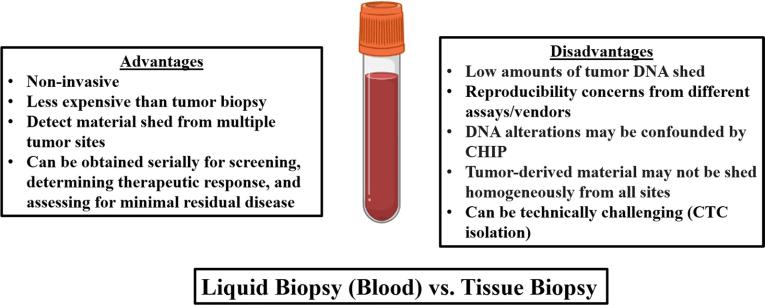Body Fluid Exosome and Tissue Exosome Combined Research Service
Overview Services Features FAQs
Overview
Challenges and Potential of Liquid Biopsy:
At present, tissue biopsy is still used in the clinical diagnosis of some diseases, but this method is limited in the application and promotion of early screening of clinical tumors. As a brand-new method, liquid biopsy based on body fluid avoids the harm of surgery to patients and has great advantages and great application potential. However, the sensitivity and specificity of existing liquid biopsy markers are still far from meeting the needs for precise diagnosis and treatment. Due to the variety of information carried, the key information in body fluid exosomes has great potential as a diagnostic marker for diseases. However, body fluid exosomes originate from various tissues in the body, resulting in a complex composition. Therefore, the proportion of cell-derived exosomes in the real lesion site is very low. Overall, it remains unclear whether markers in body fluid exosomes screened by omics analysis are of disease-specific origin. It is an urgent problem to find markers with high accuracy and reliability in body fluid exosomes.
 Fig.1 Advantages and disadvantages of liquid versus tissue biopsy.1,2
Fig.1 Advantages and disadvantages of liquid versus tissue biopsy.1,2
The Role of Tissue-derived Exosomes in Liquid Biopsy Development
Tissue exosomes are a type of exosomes that are secreted by various cells in specific tissues into the interstitial space and carry tissue-specific information. These exosomes can enter the body fluid circulation to transmit signals to target organs or tissues. The most important thing is that tissue-derived exosomes contain more rich information on the lesion site and can better reflect the real situation of the lesion site. With the continuous improvement of tissue exosome extraction technology, some researchers have screened out some key molecules in exosomes that exist in body fluids and diseased tissue microenvironments. This helps to more precisely find exosome-based liquid biopsy markers.
Creative Biolabs has formed a unique tissue exosome extraction process, based on which it can provide combined research service for tissue exosomes and body fluid exosomes, helping customers to screen out diagnostic markers that can be transformed into clinical practice and developed products that provide convenience for human health.
Services
Body Fluid Exosome and Tissue Exosome Combined Research Process
Several research teams took the lead in isolating extracellular vesicles and particles (EVPs) from different tumor tissues and several body fluid sources for proteomics. Then they performed a joint analysis of EVPs from these different sources to screen some potential biomarkers in exosomes for tumor detection and determination of tumor types. Since the vesicles were isolated in an ultracentrifuge manner in this study, some non-vesicle particles still exist, so the definition of EVPs was used to describe it more accurately. At Creative Biolabs, we can provide customers with the tissue exosome extracting service successively through differential centrifugation, ultracentrifugation, molecular size exclusion, and ultrafiltration. More importantly, our professional bioinformatics analysis team can provide customers with a more authoritative marker collection in exosomes through a variety of calculation methods and comparative analysis.
Features
-
Extraction services for body fluid exosomes and tissue exosomes
-
Unique joint research platform
-
Supporting biomarker discovery
-
Advanced bioinformatics analysis strategies
Creative Biolabs has been focusing on exosome research and providing customers with the most advanced exosome technology services for many years. In addition to innovative tissue exosome extraction services and exosome extraction services suitable for various body fluids, we can also provide subsequent exosome identification, exosome proteomics, exosome next-generation sequencing, exosome lipidomics, metabolomics, etc. If you want to find more reliable disease markers in body fluid-derived exosomes, please contact us to inform us of your specific sample information and research purposes.
FAQs
Q: What is the advantage of combining body fluid exosome and tissue exosome analysis?
A: Tissue-derived exosomes carry more lesion-specific information, while body fluid exosomes allow for non-invasive analysis. Together, they offer a more complete picture, improving the accuracy and relevance of biomarker discovery for clinical applications.
Q: How can your services help in identifying clinically relevant biomarkers?
A: Our joint research platform integrates both body fluid and tissue exosome analysis to help identify biomarkers that are more closely linked to the disease site. By using advanced omics technologies and bioinformatics analysis, we ensure that the biomarkers identified have high specificity and reliability for clinical translation.
Q: For a combined study of exosomes from body fluids and tissues, what sample volume do you recommend I provide?
A: The required sample volume for the combined analysis varies depending on the sample type (such as serum, plasma, urine, cerebrospinal fluid, or ascitic fluid). Typically, we recommend a minimum of 2mL for body fluids like serum or plasma, and at least 2g for tissue-derived exosomes. Our team can offer detailed guidance tailored to your specific research needs.
References
-
Nikanjam, MS.; et al. Liquid biopsy: current technology and clinical applications. Journal of Hematology & Oncology. 2022, 15(1):131.
-
Distributed under Open Access license CC BY 4.0, without modification.
For Research Use Only. Cannot be used by patients.
Related Services:

 Fig.1 Advantages and disadvantages of liquid versus tissue biopsy.1,2
Fig.1 Advantages and disadvantages of liquid versus tissue biopsy.1,2









